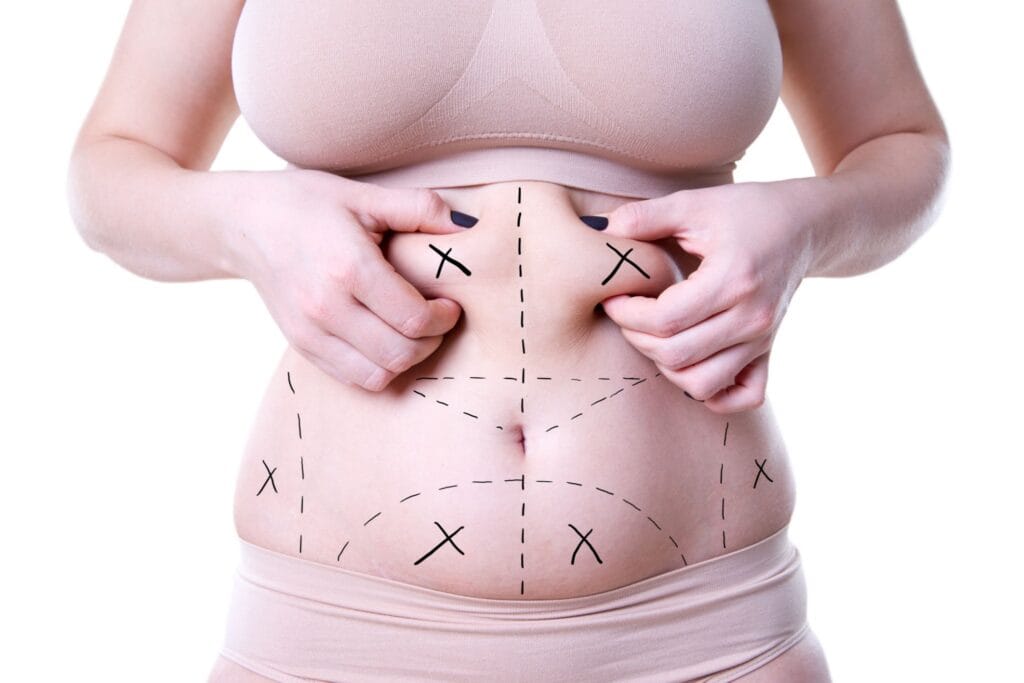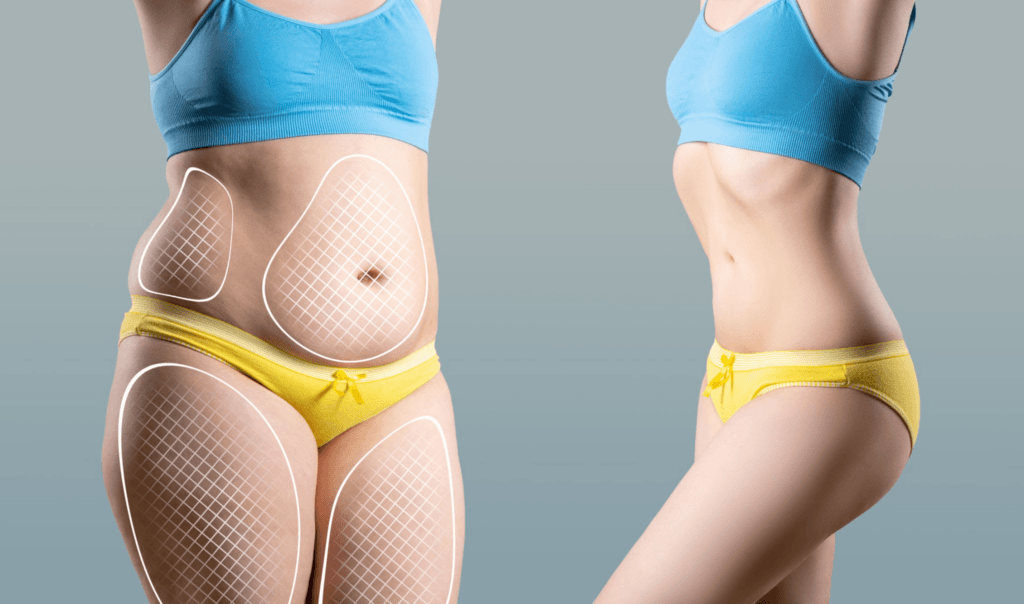The age-old question of achieving a sculpted physique often pits liposuction against dieting. Both methods aim for fat reduction, but their mechanisms and effectiveness differ significantly. This article clarifies the distinctions, highlighting the roles of each approach and the potential benefits of a combined strategy.
Table of Contents
Liposuction vs. Diet: An Overview
Liposuction and dieting represent distinct approaches to fat reduction. Dieting focuses on creating a caloric deficit to induce weight loss, impacting the entire body. Liposuction, conversely, is a surgical procedure targeting specific areas of localized fat deposits that are resistant to diet and exercise. It’s crucial to understand that liposuction is not a weight-loss solution but rather a body contouring procedure. The ideal candidate possesses a stable weight and realistic expectations regarding its limitations.
The primary difference lies in the mechanism of fat removal. Dieting relies on metabolic processes to break down fat cells and utilize them for energy. Liposuction directly removes fat cells through suction, resulting in a more immediate and targeted reduction in volume. This makes it particularly effective for areas like the abdomen, thighs, and flanks where stubborn fat often persists despite lifestyle changes. However, liposuction does not address underlying metabolic issues contributing to weight gain.
Furthermore, the recovery periods differ considerably. Dieting is a continuous process requiring consistent effort and lifestyle modifications. Liposuction involves a surgical procedure with a recovery period encompassing swelling, bruising, and potential discomfort. Choosing the appropriate method depends heavily on individual goals, health status, and commitment levels. A thorough consultation with a qualified medical professional is always recommended.
Finally, the long-term effects vary. Successful dieting leads to sustained weight management if healthy habits are maintained. Liposuction provides a permanent reduction in the number of fat cells in the targeted area, provided the patient maintains a stable weight. However, new fat cells can still develop in other areas if lifestyle changes are not implemented.

Understanding Liposuction’s Role
Liposuction’s primary role is sculpting the body, not achieving significant weight loss. It’s designed to refine contours and address areas resistant to diet and exercise. Think of it as a tool to enhance the results of a healthy lifestyle, not a replacement for it. The procedure selectively removes fat cells from specific zones, improving body proportions and definition.
Candidates for liposuction are typically individuals near their ideal weight with localized fat deposits. These deposits often resist even rigorous exercise and dietary changes. The procedure is not a solution for obesity or significant weight loss; it’s a precision tool for body contouring. A thorough assessment by a board-certified plastic surgeon is essential to determine candidacy and establish realistic expectations.
The technique involves inserting a cannula (thin tube) through small incisions to break up and suction out fat cells. Advanced techniques utilize ultrasound or laser energy to assist in the process, minimizing trauma and improving results. The choice of technique depends on the individual’s anatomy and the surgeon’s expertise. Post-operative care is crucial for optimal healing and minimizing complications.
Ultimately, liposuction’s success depends on a patient’s commitment to maintaining a stable weight and healthy lifestyle. While it permanently removes fat cells from the treated area, new fat cells can still develop elsewhere if unhealthy habits persist. Therefore, it’s vital to view liposuction as a complement to, not a substitute for, a healthy lifestyle.
Dietary Changes & Weight Management
Dietary changes form the cornerstone of sustainable weight management. A balanced diet, rich in fruits, vegetables, lean protein, and whole grains, provides the necessary nutrients while controlling caloric intake. This approach promotes overall health and well-being, in addition to weight loss. It’s a long-term strategy requiring consistent effort and lifestyle adjustments.
Weight loss through diet is achieved by creating a caloric deficit – consuming fewer calories than the body expends. This deficit forces the body to utilize stored fat for energy, leading to gradual weight reduction. The rate of weight loss varies depending on individual factors, including metabolism, activity level, and dietary adherence. A sustainable rate of 1-2 pounds per week is generally recommended.
A crucial aspect of dietary changes is mindful eating. This involves paying attention to hunger and fullness cues, avoiding emotional eating, and making conscious food choices. Regular exercise complements dietary changes, boosting metabolism and enhancing fat burning. A holistic approach encompassing both diet and exercise yields the most effective and sustainable results.
Moreover, seeking professional guidance from a registered dietitian or nutritionist can significantly enhance the effectiveness of dietary changes. They can help create a personalized plan tailored to individual needs and preferences, ensuring adequate nutrient intake while promoting weight loss. This personalized approach increases adherence and maximizes long-term success.

Combining Approaches for Best Results
Combining liposuction with dietary changes and exercise often yields the most dramatic and sustainable results. Liposuction addresses localized fat deposits resistant to lifestyle changes, while diet and exercise promote overall weight management and prevent future fat accumulation. This integrated approach offers a synergistic effect.
For instance, liposuction can sculpt the abdomen, while dietary changes and exercise maintain a healthy weight and prevent further fat accumulation in that area or elsewhere. This combined strategy maximizes the benefits of both approaches, resulting in a more refined and lasting physique. However, it’s crucial to prioritize a healthy lifestyle before undergoing liposuction.
The timing of these approaches should be carefully planned. It’s generally recommended to achieve a stable weight before considering liposuction. This ensures the best surgical outcome and minimizes potential complications. Post-operative adherence to a healthy lifestyle is crucial for maintaining the results and preventing future fat accumulation.
Ultimately, the decision to combine liposuction with dietary changes and exercise should be made in consultation with a qualified plastic surgeon and healthcare professional. They can assess individual needs, goals, and health status to develop a personalized plan that maximizes the chances of achieving a sculpted and healthy physique.
Liposuction and dieting represent distinct but complementary approaches to fat reduction. While liposuction offers targeted body contouring, dietary changes and exercise are essential for long-term weight management and overall health. A combined strategy, carefully planned and executed, often provides the most effective and sustainable results, leading to a sculpted and healthy physique. However, realistic expectations and a comprehensive understanding of each approach are crucial for success.
Transform Your Confidence with Surgyteam!
Join the thousands of satisfied patients who have experienced the exceptional care and expertise of Surgyteam’s renowned plastic surgeons. Whether you’re seeking aesthetic enhancements or reconstructive surgery, our dedicated team in Antalya is here to provide you with the highest quality treatment and personalized care.


